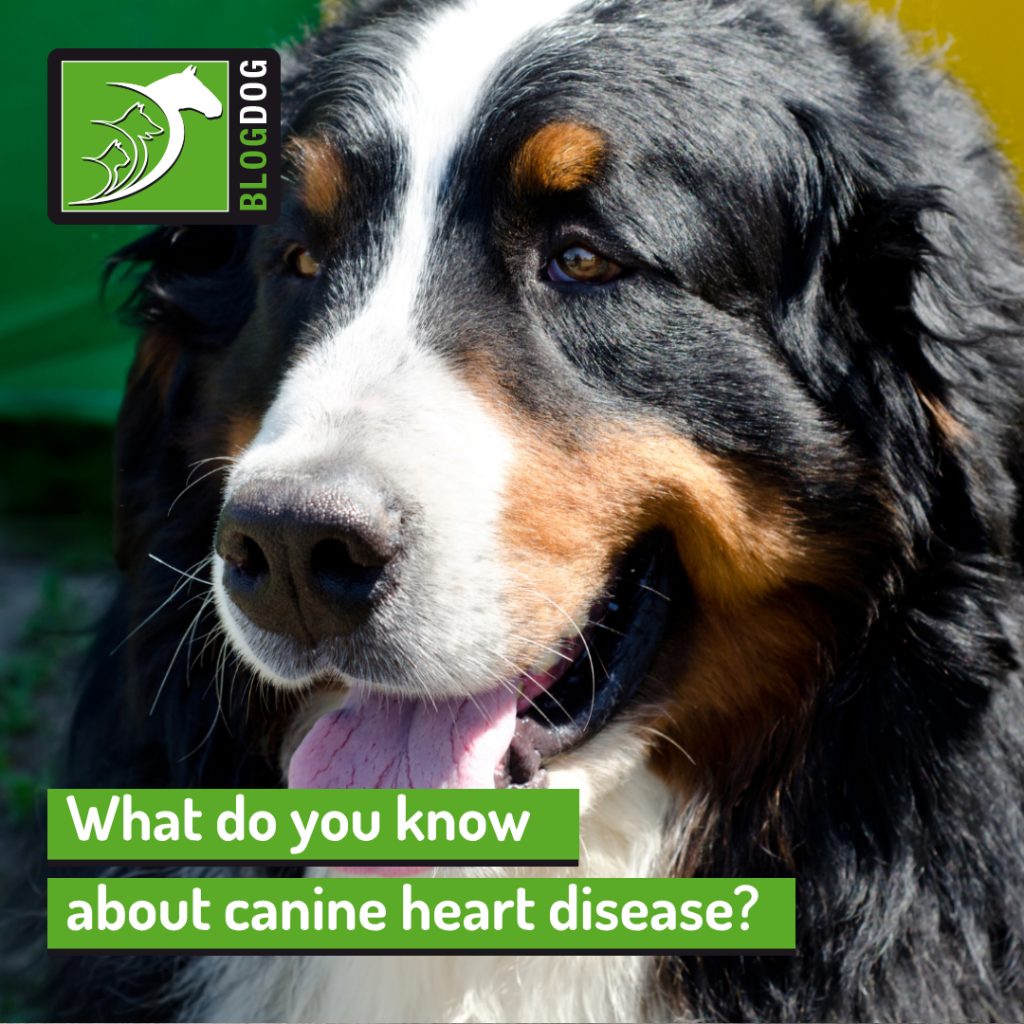How much do you know about canine heart disease? One of the most common forms of heart disease in dogs is dilated cardiomyopathy (DCM). This means that the heart chambers are enlarged, making it harder for the heart to work properly and send blood to where it needs to be.
As a progressive disease, as soon as you see the signs something might be wrong (for instance, shortness of breath, difficulty doing physical activities or fainting), it’s essential that you take your dog to the vet so he or she can be diagnosed and treated as early as possible.
Read our blog post and learn all about supporting your dog with DCM!
Heart disease in dogs
Many heart conditions in canine patients can cause problems, but the two main ones are diseases that affect the heart’s muscles or the valves of the heart chambers. In this blog, we will focus on the most common heart muscle disease: Dilated cardiomyopathy.
DCM affects mainly large and giant-sized dogs, though medium and, more rarely, smaller breeds can also be affected. This disease develops because the muscle responsible for pumping blood gets progressively thinner, showing up as an enlarged chamber in the heart.
Due to this, the muscle gets weaker and less capable of handling blood circulation. For a while, your dog’s body will be able to compensate for the loss of heart function, and you might not see any worrying signs.
However, at some point, the capacity to compensate for a faulty heart muscle is exhausted, and you might spot the following:
- Difficulty breathing
- Unusual tiredness and refusal to play or run
- Coughing
- Swollen belly
- Fainting without any other explanation
Early detection is key when it comes to DCM. If you notice any of the symptoms mentioned earlier, it’s crucial to consult your vet promptly. While there is no cure for DCM, the disease can often be effectively managed with timely intervention and regular vet visits, enhancing your dog’s quality of life.
Diagnosing canine cardiomyopathy and heart failure
The most important thing about an early diagnosis of dilated cardiomyopathy is that it gives your pet the best chance to start treatment as soon as possible.
When you bring your furry friend in, your vet will perform several types of tests, such as a special heart ultrasound to measure the heart’s electrical activity and blood tests to determine the health of organs like the kidneys or liver.
It’s important for your vet to be able to assess your dog’s degree of heart failure, which happens when his or her body cannot compensate for the lack of muscle capacity of the heart and clinical signs appear. Determining the degree of heart failure allows him or her to have a treatment that is perfectly tailored to their condition.
Helping your dog with dilated cardiomyopathy
As we’ve mentioned, it’s essential that you pay attention to the signs of heart failure and, take your dog to be properly diagnosed and have a good treatment plan put in place to help him or her live with a stable heart function and the least amount of clinical signs possible.
Each dog will have his or her personalised treatment plan, which can change over time as DCM progresses.
Because of this, an attentive owner can make all of the difference! If you notice any change in energy levels, food intake, coughing or an increase in his or her breathing rate, it’s worth checking in with your vet to see if an appointment is needed.
In summary:
- Heart disease in dogs is very common, and it will often show up as dilated cardiomyopathy (DCM), especially in large or giant dogs;
- If you spot any of the signs of heart disease in your pet, like fatigue, difficulty breathing, or a swollen abdomen, talk to your vet as soon as possible;
- Treatment of DCM is tailored to your dog’s clinical issues, and it can be adjusted as needed;
- Breathing rate, energy levels and coughing are important things to look out for if your dog is suffering from DCM;
- When you see any changes, don’t hesitate to ask for help!
Canine courses

